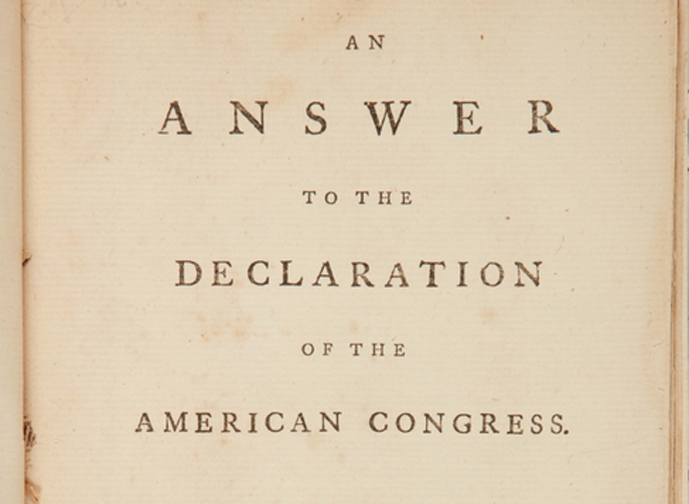Book Review: First Founding Father: Richard Henry Lee and the Call for American Independence by Harlow Giles Unger, (New York: De Capo Press, 2017)
When people think of the Founding Fathers, a few names likely come to mind. But how many minds jump to Richard Henry Lee? Moreover, how many are likely to think of Lee as a primary founder? Although instrumental at nearly every point in the journey from British colonies to independent nation, Richard Henry Lee has since faded into the background while the popular revolutionary and early national narratives focus on a handful of the Founders in more simplified versions of complex events. In First Founding Father: Richard Henry Lee and the Call for American Independence, Harlow Giles Unger brings Lee back to the forefront of the political struggles surrounding American independence. In examining Lee’s contributions in several key areas, Unger demonstrates that many of the achievements now credited almost solely to others, including the Declaration of Independence and the Bill of Rights, originated in Lee’s efforts.
Beginning with his birth at Stratford Hall in Virginia—the same birthplace as the later Robert E. Lee who commanded an army in opposition to the government that Richard Henry Lee worked tirelessly to establish—Unger traces Lee’s life and work in what is at once a biography of Lee as well as a revisitation of the major political and military thrusts of the Revolution. Influential since colonial times, the Lee family harbored both wealth and political prominence. Richard Henry Lee served his home state of Virginia in many capacities throughout the colonial, revolutionary, and early national periods, serving as a member of the Virginia House of Burgesses, the Continental Congress, and as a U.S. Senator. Unlike some of his colleagues who operated mostly in the intellectual and theoretical realms, Lee involved himself in the day-to-day efforts of the war and expended much effort to ensure that the military could accomplish the ends so that the political groundwork for which he and others labored could come to fruition. Unger meticulously relies upon official documents as well as letters and private writings to develop his case for the essentialness of Lee’s contributions to American success.
Throughout the chronicles of his public service, Unger emphasizes that Lee often thought ahead of his contemporaries when it came to large political moves. For example, Lee urged the cessation of the slave trade in Virginia, which was an important precursor to emancipation. While it did not become a reality until years later, Unger reminds us that Lee pushed for it long before his fellow politicians accepted it. Lee similarly remained at the forefront of momentous issues at other points in his political career, perhaps most notably in declaring American independence and in the addition of the Bill of Rights to the Constitution. Unger’s label of Lee as the “First Founding Father” underscores Lee’s role as a driving force behind these key moments in the nation’s establishment. It is not entirely unreasonable to speculate that had Lee not introduced and advocated for these measures, the nation’s beginning may have played out differently. While Unger’s focus is on Lee’s public service and political achievement, he provides a balanced perspective of Lee’s life and position, portraying him as a man of passionate causes while not discounting the personal motivations and hoped for benefits of Lee and his family—particularly in matters concerning landholdings.
Given all of Lee’s contributions to independence and the union of states during the early national period, it seems puzzling that the man and his accomplishments have been somewhat obscured. Unger attributes much of this to the visitor’s experience at historic homes and the latter’s role in developing popular narratives, provoking an interesting consideration of how historical memory is shaped and developed. For example, Thomas Jefferson and James Madison, each credited with the Declaration of Independence and the Bill of Rights, respectively, have houses located mere miles from each other that people from all around America and the world visit each year. With no prominent focal point for historical tourism, Lee and his role receive little public attention.
First Founding Father is arranged in eight chronological chapters and the narrative is written in an engaging and inviting manner with illustrations peppering the pages throughout. Possibly in reaction to the commonplace emphasis on other Founding Fathers, Unger at times seems to emphasize Lee’s accomplishments at the expense of those of others. For instance, Unger’s emphasis on Lee’s movement to declare independence diminishes the involvement of others, especially Thomas Jefferson’s crafting of the document. This, however, is understandable since Unger is working to correct misperceptions and deeply rooted imbalances in the historical memory. Unger’s work is sophisticated enough that readers with an already intimate knowledge of the period and events will gain something from the work, while more casual students of the period will find First Founding Father an interesting introduction to a key, but often forgotten, politician in the nation’s early history.










2 Comments
great book review. The Lee family tree is so very interesting. I’ll be reading this book!
This sounds like an awesome read. It’s my understanding that Richard Henry Lee became an obscure historical figure because of Robert E. Lee.